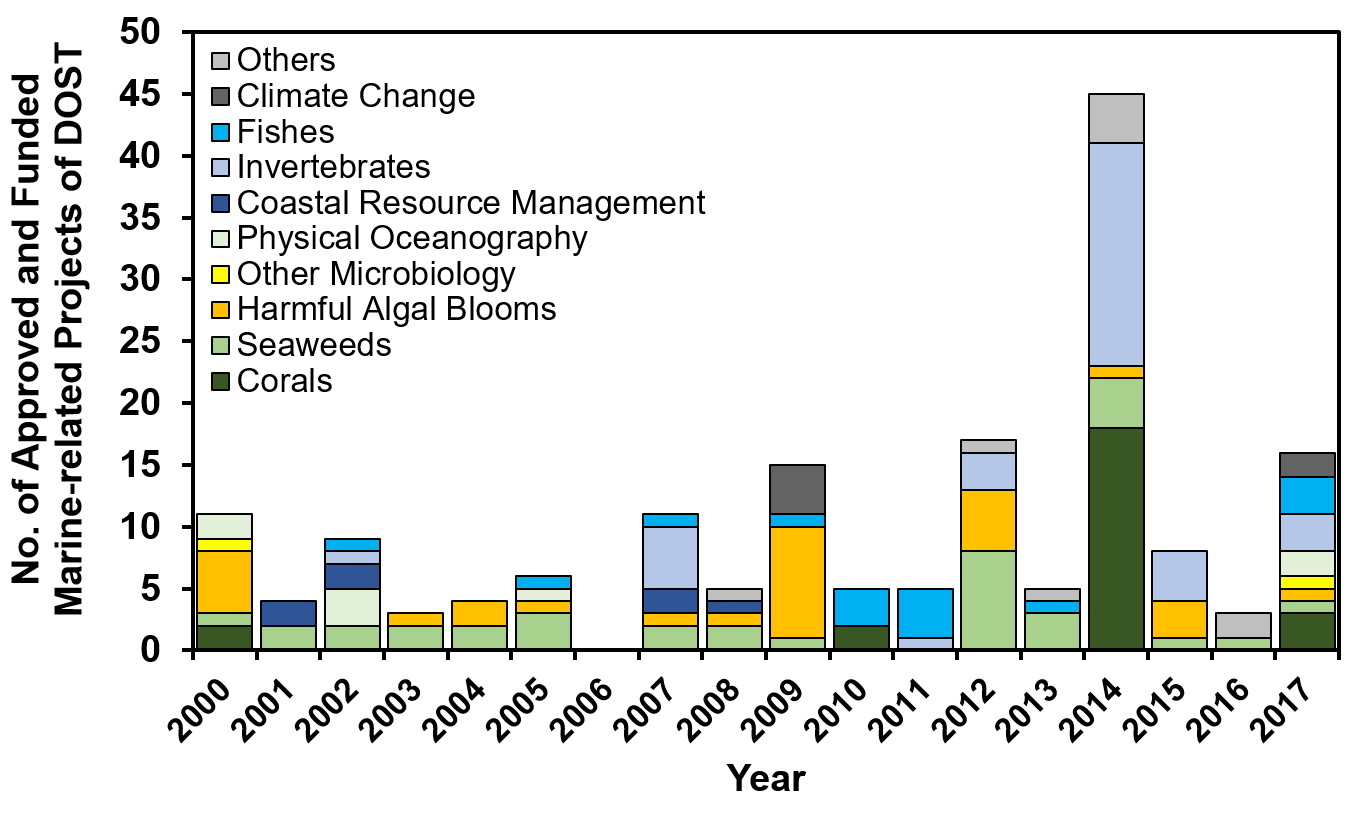VOLUME 12 NUMBER 1 (January to June 2019)

Philipp. Sci. Lett. 2019 12 (1) 009-023
available online: March 08, 2019
*Corresponding author
Email Address: dfonda@msi.upd.edu.ph
Date Received: July 17, 2018
Date Revised: January 30, 2019
Date Accepted: February 13, 2019
REVIEW
Microbial oceanography studies in the context of climate change in the Philippines
by Deo Florence L. Onda*1, Mary Ann G. Santos2, Donna de la Cruz- Papa2, Aletta T. Yñiguez1, Rhodora V. Azanza1, and Maria Auxilia T. Siringan3
1The Marine Science Institute, University of the Philippines, Diliman, 1101,
Quezon City, Philippines
2College of Science and Research Center for the Natural and Applied Sciences,
University of Sto. Tomas, España, Manila, 1008, Philippines
3Natural Sciences Research Institute, University of the Philippines, Diliman, 1101,
Quezon City, Philippines
Quezon City, Philippines
2College of Science and Research Center for the Natural and Applied Sciences,
University of Sto. Tomas, España, Manila, 1008, Philippines
3Natural Sciences Research Institute, University of the Philippines, Diliman, 1101,
Quezon City, Philippines
Studying ocean microbiomes is important in understanding the effects of the changing environment on our seas. The Philippines, being an archipelago, has been regarded as one of the most vulnerable regions under climate change scenarios, and understanding of the functions and diversity of microbial communities is a paramount step toward mitigating and adapting to the impact of globally or locally catastrophic environmental changes. We explore the current state, challenges, and potentials for microbial oceanography or marine microbial studies in the Philippines, particularly in the context of climate change, and suggest measures on how we can best move forward to upgrade and contribute to the development of this field in the country. Despite the great diversity in the marine provinces in the country and the answers they hold in unlocking the secrets of microbial communities, this review highlights that Philippine-based microbial or marine research in general has been limited. Previous microbial studies focused on applications in aquaculture and fisheries, while more basic aspects such as on diversity and ecological interactions and functioning are sorely lacking. Limited recognition and support for basic research, lack of expertise, and insufficient infrastructure (e.g., properly equipped oceangoing research vessels) were identified as critical bottlenecks in the progress of ocean research in general. The heightened national interest in the country’s oceans and greater awareness of climate change threats can be a means further to spur Philippine oceanographic research that can be strengthened through the mobilization of research networks around the country.
© 2026 SciEnggJ
Philippine-American Academy of Science and Engineering